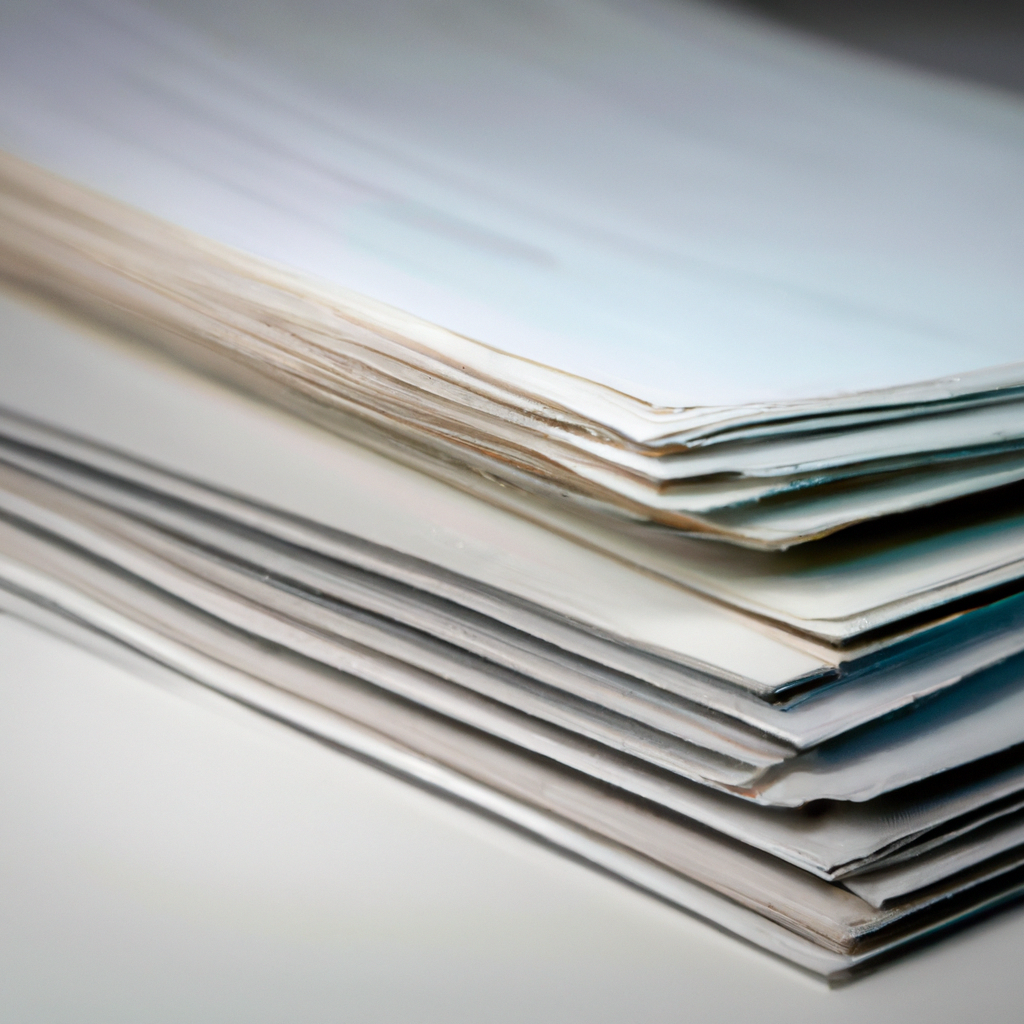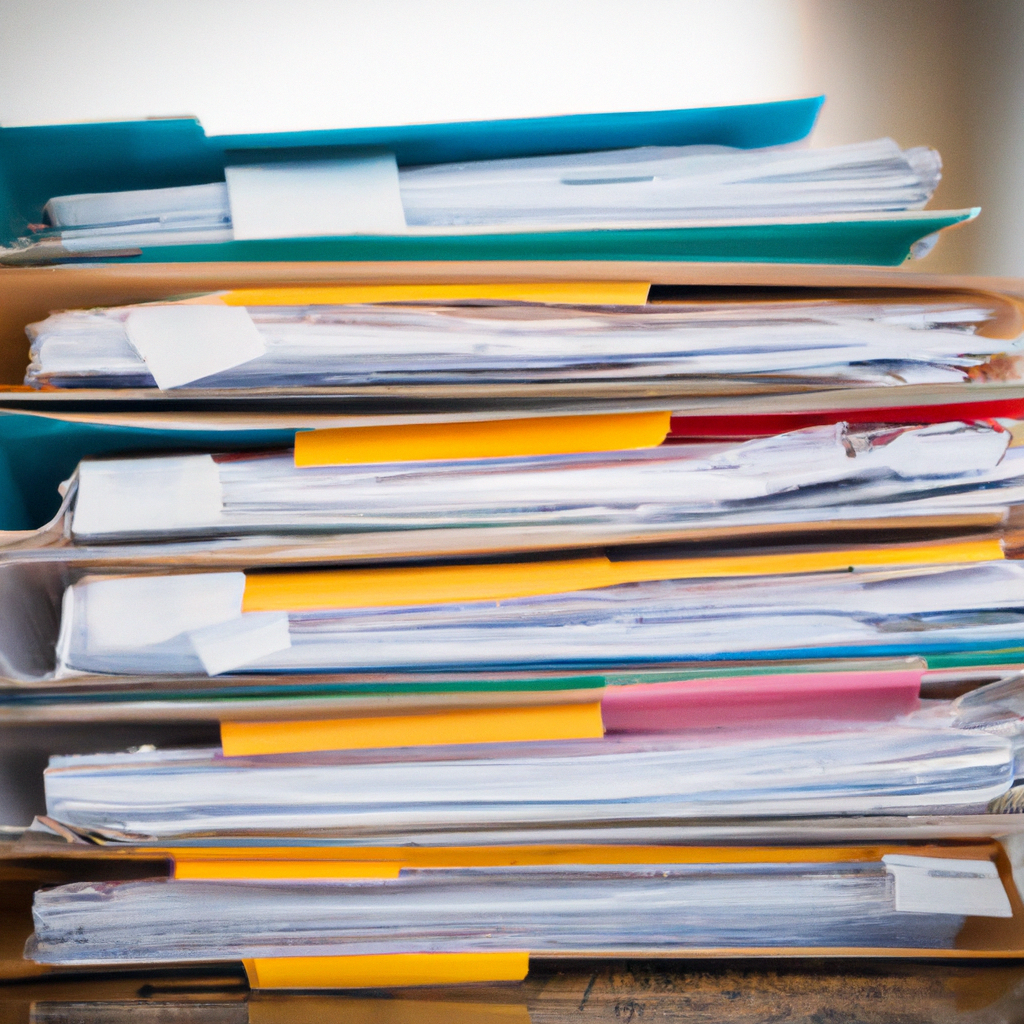In order to stay on top of your job-related expenses, it is essential to maintain detailed records. This includes keeping track of expenses like mileage, travel, and equipment. By diligently recording these expenses, you can ensure accurate reimbursement or deductions and stay organized throughout your professional journey. In this article ‘Maximizing Tax Deductions: The Essential Guide to Tracking Job-Related Expenses’, we will explore the importance of keeping detailed records and how it can benefit you in the long run.
1. Importance of Keeping Detailed Records
Keeping detailed records of your job-related expenses is crucial for several reasons. By doing so, you can avoid overlooking deductible expenses, ensure accurate accounting, and facilitate tax returns.
1.1 Avoid Overlooking Deductible Expenses
By keeping detailed records of your expenses, you minimize the chances of overlooking deductible expenses. Deductible expenses are costs that can be subtracted from your taxable income, ultimately reducing the amount of tax you owe. Without proper record-keeping, it’s easy to forget or miss out on deductible expenses, resulting in a missed opportunity to save money.
1.2 Ensure Accurate Accounting
Accurate accounting is essential for effectively managing your finances. When you keep detailed records of your job-related expenses, you have a clear picture of your income and expenditures. This allows you to effectively track your business expenses, analyze your spending patterns, and make informed financial decisions. It also ensures that you have a reliable record of your expenses for auditing purposes if necessary.
1.3 Facilitate Tax Returns
During tax season, having detailed records of your job-related expenses makes the process of filing your tax returns much easier. With accurate and comprehensive records, you can confidently report your deductible expenses and claim the appropriate deductions. This not only saves you time and effort but also reduces the risk of making errors or triggering a tax audit.
2. Types of Job-related Expenses to Track
When it comes to tracking job-related expenses, there are several categories you need to pay attention to. These include mileage, travel expenses, and equipment costs.
2.1 Mileage
If your job involves traveling by car or other vehicles, tracking your mileage is vital. Whether it’s commuting to and from work, visiting clients, or attending business meetings, you can potentially deduct these mileage expenses as business-related expenses. Keeping a log of your mileage, including the date, starting and ending locations, and reason for the trip, will help you accurately calculate your deductible mileage.
2.2 Travel
If you frequently travel for work purposes, it’s crucial to track and document your travel expenses. This includes costs such as airfare, accommodation, meals, and transportation while on your business trips. By keeping detailed records of these expenses, such as receipts, invoices, and travel itineraries, you can easily substantiate and deduct these expenses when filing your taxes.
2.3 Equipment
If you purchase equipment or tools necessary for your job, it’s important to keep records of these expenses. This includes items like laptops, software, specialized tools, or even office furniture. By documenting these equipment costs, you can potentially deduct their value as business expenses, either in the year of purchase or over a period of time through depreciation.

3. Establishing a Reliable System for Record-keeping
To ensure the accuracy and accessibility of your records, it’s essential to establish a reliable system for record-keeping. This system should include selecting a record-keeping method, organizing and labeling receipts, and integrating digital tools.
3.1 Selecting a Record-keeping Method
The first step in establishing a reliable record-keeping system is to choose a method that works best for you. This could be a physical filing system using folders and envelopes, a digital system using spreadsheets or dedicated software, or a combination of both. Consider your preferences, the volume of your expenses, and the ease of retrieving and analyzing data when deciding on a record-keeping method.
3.2 Organizing and Labeling Receipts
Properly organizing and labeling your receipts is essential for efficient record-keeping. Create separate folders or envelopes for different expense categories and label them accordingly. As you accumulate receipts, be diligent in separating them based on their purpose and recording any relevant information such as the date, vendor, and amount. This will make it easier to identify and retrieve specific receipts when needed.
3.3 Integrating Digital Tools
Leveraging digital tools can significantly enhance your record-keeping process. Consider utilizing expense tracking apps that allow you to easily capture and categorize expenses on-the-go. These apps often have features like receipt scanning, mileage tracking, and automatic expense categorization. Additionally, cloud-based storage solutions can help ensure the security and accessibility of your records from any device.
4. Tips for Effective Expense Tracking
To make the most out of your record-keeping efforts, here are some tips for effective expense tracking:
4.1 Capture and Store Information in Real-time
Make it a habit to capture and store expense information in real-time. Waiting too long to record your expenses increases the chances of forgetting important details or misplacing receipts. Utilize mobile apps or keep a notebook handy to immediately jot down expenses and relevant information as soon as they occur.
4.2 Categorize Expenses Appropriately
Maintaining proper expense categorization is key to accurately tracking and analyzing your spending. Create clear and specific categories that align with your business needs and the tax deductibility criteria. Regularly review and update your expense categories as necessary, ensuring they accurately reflect the nature of your work-related expenses.
4.3 Retain and Archive Supporting Documents
While keeping digital records is convenient, it’s still important to retain and properly archive the supporting documents. This includes physical receipts, invoices, and any other relevant paperwork. Establish a system for storing these documents, such as file folders or a dedicated digital archive. Keeping these supporting documents organized and easily accessible will save you time and effort when substantiating your expenses if needed.

5. Common Mistakes to Avoid
To ensure the effectiveness of your record-keeping efforts, be mindful of common mistakes that can hinder your financial management and tax deductions.
5.1 Neglecting Small Expenses
Although small expenses may seem insignificant, they can add up over time. Neglecting to track and document these small expenses can result in missed deductions and inaccurate financial analysis. Whether it’s a cup of coffee during a business meeting or parking fees, remember to record and categorize all your expenses, no matter how small they may be.
5.2 Failing to Include All Reimbursable Items
If your employer offers reimbursements for certain job-related expenses, it is crucial to include these expenses in your records. Failing to do so not only prevents you from properly tracking your personal spending but may also lead to missed opportunities for reimbursement. Keep track of any expenses that are eligible for reimbursement and ensure they’re clearly documented for reimbursement purposes.
5.3 Ignoring Applicable Deadlines
Deadlines are an essential aspect to consider when it comes to expense tracking. Missing deadlines to submit expense reports or claim deductions may result in financial penalties or missed opportunities. Stay informed about the applicable deadlines for recording, reporting, and claiming your job-related expenses to avoid any negative consequences.
6. Benefits of Maintaining Comprehensive Records
Maintaining comprehensive records of your job-related expenses provides several benefits that can positively impact your financial management and overall business operations.
6.1 Easier Audit Preparation
In the event of an audit by tax authorities or for business purposes, having comprehensive records simplifies the audit preparation process. Accurate and detailed records allow you to quickly and efficiently provide the necessary documentation and substantiation for your expenses. This reduces stress and ensures a smoother audit process overall.
6.2 Maximize Deductible Expenses
Thorough record-keeping empowers you to maximize your deductible expenses. By diligently tracking and documenting your job-related expenses, you have a better understanding of which expenses qualify for deductions. This, in turn, allows you to take full advantage of all eligible deductions and minimize your tax liability.
6.3 Improved Financial Management
Keeping comprehensive records of your job-related expenses provides you with valuable financial insights. By analyzing your expenses, you can identify areas where you can cut costs, improve efficiency, and make informed financial decisions. This level of financial management helps you maintain control over your expenses, maximize profitability, and plan for future growth.

7. Legal and Compliance Considerations
When it comes to record-keeping for job-related expenses, it’s important to consider legal and compliance requirements, especially regarding taxes. Familiarizing yourself with local tax regulations and requirements ensures that you maintain proper records that are compliant with the law.
7.1 Familiarize with Local Tax Regulations
Tax regulations can vary from country to country and even within different regions or states. Take the time to familiarize yourself with the tax regulations specific to your location. Be aware of what expenses are deductible, any reporting requirements, and the necessary record-keeping practices to follow. Staying informed about tax regulations helps you avoid issues with tax authorities and maintain compliance.
7.2 Consult with Professionals
When in doubt, seeking advice from professionals, such as accountants or tax specialists, can be extremely beneficial. These professionals have extensive knowledge and experience in navigating tax regulations and record-keeping requirements. They can provide valuable guidance and ensure that you meet all legal and compliance obligations related to your job-related expenses.
8. Potential Challenges and Solutions
Keeping detailed records of your job-related expenses may present some challenges along the way. Being prepared and implementing effective solutions can help overcome these challenges and ensure the integrity of your records.
8.1 Lost or Misplaced Receipts
Misplacing or losing receipts can be a common issue when you have a large volume of expenses. To mitigate this challenge, make it a habit to immediately store receipts in a designated location or scan them into a digital archive. Consider using expense tracking apps or online expense management systems that provide receipt scanning capabilities for easy documentation and retrieval.
8.2 Inefficient Record-keeping Practices
If you find yourself struggling with inefficient record-keeping practices, it’s essential to assess your current system and make necessary improvements. Look for ways to streamline your record-keeping process, such as implementing standardized templates, utilizing digital tools for automated data entry, or simplifying your expense categorization system. Finding a system that works for you and regularly reviewing and updating your practices will improve the accuracy and efficiency of your record-keeping.
8.3 Dealing with Unexpected Situations
Life is full of unexpected situations that can potentially disrupt your record-keeping process. Whether it’s a natural disaster damaging physical records or a technical issue affecting your digital storage, it’s crucial to have contingencies in place. Develop a backup plan that includes maintaining physical copies of important documents in a secure location and regularly backing up your digital records to protect against unforeseen events.

9. Utilizing Technology for Streamlined Expense Tracking
Technology offers numerous tools and solutions that can significantly streamline your expense tracking process. By leveraging these digital tools, you can simplify data entry, enhance accuracy, and improve the accessibility of your records.
9.1 Expense Tracking Apps
Expense tracking apps have revolutionized the way individuals and businesses manage their expenses. These apps offer features such as receipt scanning, automatic expense categorization, and mileage tracking. They allow you to easily capture and categorize expense information in real-time, saving you valuable time and effort. Choose an app that aligns with your specific needs and integrates with your existing record-keeping system.
9.2 Cloud-Based Storage Solutions
Cloud-based storage solutions provide a secure and convenient way to store and access your expense records. These solutions offer storage space for digital documents, including receipts, invoices, and other supporting documents. With cloud-based storage, you can access your records from any device with an internet connection, ensuring that your records are safe and accessible, even if your computer or physical storage is compromised.
9.3 Integration with Accounting Software
Integrating your expense tracking system with accounting software can streamline the financial management process. Many accounting software solutions have built-in expense tracking features that allow you to import and categorize expense data directly into your financial records. This integration eliminates the need for manual data entry and ensures consistency and accuracy across your financial records.
10. Implementing Best Practices for Long-term Success
To maintain successful record-keeping practices in the long run, it’s important to implement best practices and regularly update your systems and processes.
10.1 Regularly Review and Update Records
Make it a habit to periodically review and update your records to ensure their accuracy and relevance. Regularly reconcile your records with bank statements, credit card statements, and other financial documents to catch any discrepancies. Also, update your expense categories and labels as your business needs evolve to maintain an efficient system.
10.2 Stay Informed about Tax Law Changes
Tax laws and regulations are subject to change, and staying informed is crucial to maintaining compliance and maximizing deductions. Stay up to date with changes in tax laws that may impact your job-related expenses. This can be done through newsletters, tax authorities’ websites, or by consulting professionals who specialize in tax regulations.
10.3 Seek Professional Advice
When it comes to complex tax matters and financial management, seeking professional advice can provide invaluable support. Accountants, tax specialists, or financial advisors can guide you through the intricacies of record-keeping, help ensure compliance with tax regulations, and provide strategic advice to optimize your financial management.
In conclusion, keeping detailed records of your job-related expenses is essential for various reasons. It helps you avoid overlooking deductible expenses, ensures accurate accounting, and facilitates tax returns. By tracking types of expenses such as mileage, travel, and equipment costs, you can maximize deductions and improve financial management. Establishing a reliable system for record-keeping, utilizing technology, and adhering to best practices contribute to long-term success. Remember to stay informed about legal and compliance considerations, seek professional advice when needed, and regularly review and update your records to maintain accuracy and efficiency.


